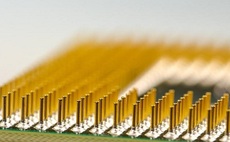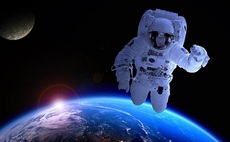Muirhead encourages firms to balance risk with preparation
LAS VEGAS: The head of NASA's famed Jet Propulsion Laboratory (JPL) took to the stage on Thursday to share the wisdom he has picked up over years of overseeing the agency's wildly successful Mars e...
To continue reading this article...
Join Computing
- Unlimited access to real-time news, analysis and opinion from the technology industry
- Receive important and breaking news in our daily newsletter
- Be the first to hear about our events and awards programmes
- Join live member only interviews with IT leaders at the ‘IT Lounge’; your chance to ask your burning tech questions and have them answered
- Access to the Computing Delta hub providing market intelligence and research
- Receive our members-only newsletter with exclusive opinion pieces from senior IT Leaders






















